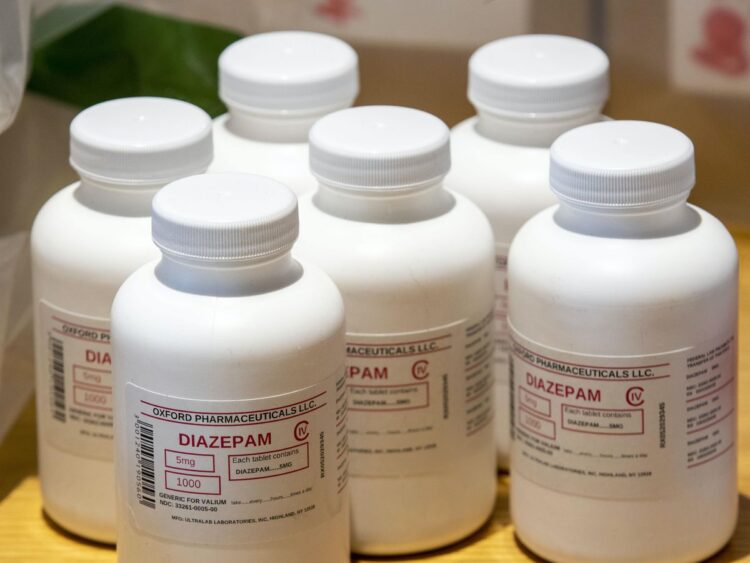By Charlotte Webster-
Anti-anxiety pills have left several people in Swansea seriously ill in hospital. The tablets were being sold illegally as Valium and Xanax in Swansea and Neath Port Talbot. South Wales Police said it was contacted by the health board on Wednesday evening and was carrying out an extensive investigation.
The news comes as a report warned of the number of fake pills being seen by health experts. Public Health Wales’ drugs testing lab said it had seen a “substantial increase” in pills being sent for analysis by people concerned about their authenticity.
The most common types were benzodiazepines, a group of anti-anxiety pills which includes diazepam and Xanax.
A sample of 320 submitted in the past year where people believed they had bought Xanax revealed that 58% were found to contain a different substance entirely.
Out of 712 diazepam samples, 55% were found to be something else, with many consisting of significantly more potent chemicals that have never been regulated for medical use. The fake distribution of these pills for monetary gain is disturbing, given the wide market on the streets for pills and different drug types which young people have become increasingly vulnerable to.
Fake pills can be up to 10 times stronger than what people think they are taking, leading to longer-lasting side effects and long-term addiction or overdose. Inferior ingredients are used to make the fake pills.
Anxiety is relatively common in the Uk and many countries, affecting an estimated 275 million people world wide, with women in the Uk twice as likely as men to suffer from anxiety. In 2020, 6.8% of women were diagnosed with generalized anxiety compared with 4.9 % of all men. Anxiety is caused by a combination of environmental factors and genetics, including negative experiences. Strict lockdown measures has increased anxiety levels for people in the Uk, particularly those already suffering from it before the lockdown.
Josie Smith, PHW’s head of substance misuse told the BBC that the issue had likely got worse due to Covid and lockdowns.
“These drugs may not be regulated in the UK and they will differ in strength and in the speed at which the effects are felt… so there’s a very real risk of accident, as sadly we’re hearing today,” she told Claire Summers on BBC Radio Wales.
Ms Smith said: “Given the stresses, strains and pressures that people have been under in the past year, they may have been more inclined to self-medicate with medicines not prescribed to them.
“We are more frequently now hearing from individuals saying that they didn’t wish to go to their GP to talk about the challenges they were experiencing and found it easier to go online.”
Smith said there was anecdotal evidence of an increase of the use anti-anxiety and anti-depression drugs during the pandemic.
She added there was anecdotal evidence of an increase of the use anti-anxiety and anti-depression drugs during the Covid pandemic.
Fake pills can be up to 10 times stronger than what people think they are taking, potentially leading to longer-lasting side effects and long-term addiction or overdose. Inferior ingredients are used to make the pills.
Many closely resemble genuine pharmaceuticals, with blister packs and accompanying medical information leaflets. Some of the drugs found to be fake closely resembled genuine pharmaceuticals
The Welsh Emerging Drugs and Identification of Novel Substances (Wedinos) project, which analyses drug samples sent in from across the UK, saw a 40% increase in the number of benzodiazepine samples, up from 846 in 2019-20 to 1,205 in 2020-21.
Diazepam and Xanax were the most common pills people believed they were buying.
Ms Smith said some people may worry about the stigma of seeking medication, but urged them to go to their GPs.
She said: “We know that the age range for this is enormous.
“The youngest person submitting a sample was 14 and the oldest was 89, so this is right across the age groups. This isn’t exclusively a young person’s issue or an older person’s issue.”
Out of 320 samples submitted in the past year where people believed they had bought Xanax, 58% were found to contain a different substance entirely.
Out of 712 diazepam samples, 55% were found to be something else, with many consisting of significantly more potent chemicals that have never been regulated for medical use.

